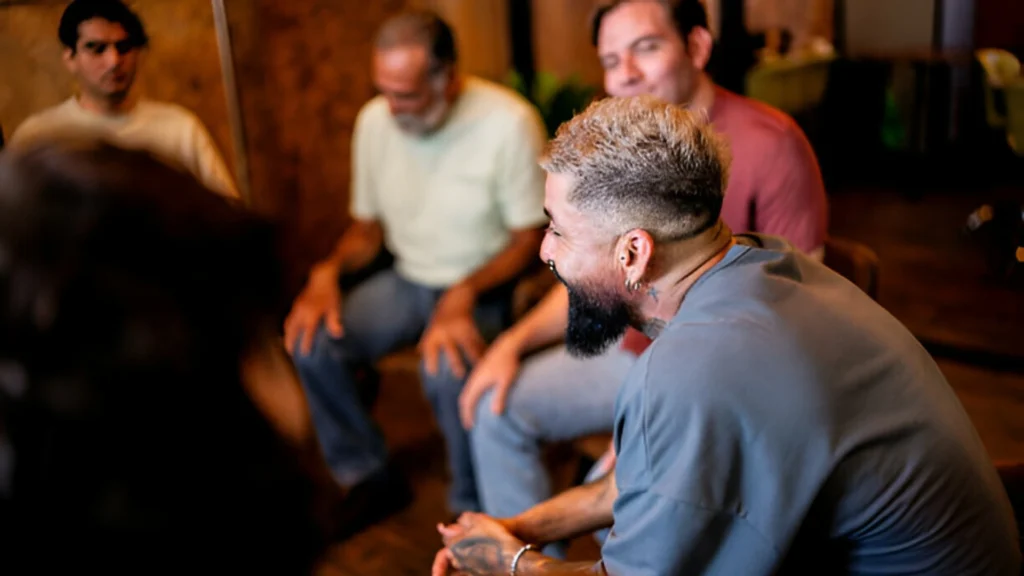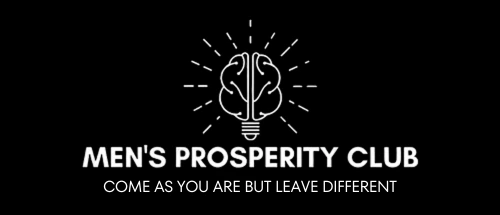Mental health remains a significant challenge for men across all age groups, especially adult men who often face societal pressures to suppress their emotions. While awareness about mental health has grown, the stigma surrounding men seeking help persists, leaving many to struggle in silence. Community support offers a vital avenue for men to navigate their mental health journeys, providing connection, understanding, and a path toward healing.
This blog explores the role of community in fostering mental health and offers practical steps for men to build these essential connections. If you’re navigating mental health struggles, remember: you don’t have to face it alone.
Why Men Need Community Support for Mental Health
The Burden of Societal Expectations
Men are often socialised to believe that strength means self-reliance and stoicism. While resilience is a valuable trait, the suppression of emotions can have devastating effects on mental health.
- Emotional suppression: Avoiding emotional expression often leads to internalised stress and anxiety.
- Isolation: Men may feel they cannot turn to others for fear of appearing weak.
- Harmful coping mechanisms: Many turn to substances or risky behaviours as outlets for unaddressed emotions.
Men are less likely to ask for help, even when they are having a hard time, because of this cultural narrative. Community support offers a way to challenge these norms and redefine what it means to be strong.
The Importance of Connection
Connection is one of the most powerful tools for healing mental health challenges. Studies consistently show that people with strong social ties experience better overall well-being, reduced symptoms of anxiety and depression, and improved resilience during tough times.
1. Breaking the Cycle of Isolation
Loneliness is often both a cause and a symptom of poor mental health. Joining a supportive community breaks the cycle of isolation by fostering a sense of belonging. When men see others openly sharing their experiences, they realise they’re not alone.
2. Emotional Validation
Many men struggle to validate their emotions because society has taught them to suppress their feelings. In a group setting, hearing someone else articulate a similar struggle can be incredibly affirming.
3. Building Confidence Through Shared Experiences
Communities not only help, but they also show people how to do things. Observing others who’ve navigated similar challenges and come out stronger can inspire confidence in one’s ability to overcome their struggles.

Benefits of Community Support for Mental Health
Joining a supportive community offers numerous benefits, including emotional growth, personal development, and practical coping mechanisms.
Shared Understanding
A core benefit of community support is shared understanding. Whether dealing with stress, anxiety, or grief, having others who “get it” creates a sense of solidarity. Shared experiences make challenges feel less overwhelming.
Reducing Stigma
Due to the social stigma surrounding mental health, many men don’t get help. Being part of a group where mental health is openly discussed normalises these conversations, helping men see vulnerability as a strength rather than a weakness.
Accountability and Motivation
Community groups encourage members to set personal goals and hold themselves accountable. Whether it’s attending therapy, exercising regularly, or practising mindfulness, having peers cheer you on can make a world of difference.
Learning Practical Skills
Support groups are often platforms for exchanging ideas and strategies for managing mental health. You might learn about effective coping mechanisms, relaxation techniques, or local resources you weren’t aware of before.
How to Find the Right Community
For men seeking mental health support, finding the right community can feel daunting. But with a bit of exploration, the rewards are worth the effort.
1. Start with Local Groups
Many organisations, such as Men’s Prosperity Club, offer local support groups tailored to men’s mental health. These groups provide structured spaces to connect and grow.
2. Explore Online Communities
Virtual platforms can be particularly useful for those who feel more comfortable discussing their struggles anonymously or cannot access in-person groups. Forums, social media groups, and apps focused on mental health can be a great starting point.
3. Engage in Hobbies
Shared interests often lead to meaningful connections. Sports teams, book clubs, and outdoor activity groups can foster camaraderie while providing an outlet for stress.
4. Seek Professional Recommendations
Mental health professionals often have connections with community resources. If you’re already seeing a therapist or counsellor, ask them about group options in your area.
5. Use Charity Signposting Services
Charity signposting services, like the one offered by Men’s Prosperity Club, connect individuals with resources tailored to their needs. These services can guide you to organisations, hotlines, and therapists focused on men’s mental health.
Building Your Own Community
If existing options don’t meet your needs, consider building your own support group. Here’s how:
- Define your purpose: Be clear about the focus of your group, whether it’s anxiety support, grief processing, or general mental health.
- Find a venue: Churches, libraries, and community centres are excellent spaces for hosting gatherings.
- Recruit members: Start by inviting friends or acquaintances who might benefit. Additionally, you may publish on nearby message boards or forums.
- Set expectations: Establish ground rules, such as confidentiality and respectful communication, to ensure the group remains a safe space.
- Keep it consistent: Regular meetings build trust and encourage participation.
Addressing Common Barriers
Many men hesitate to join community support groups due to fear or uncertainty. Let’s address some common concerns:
Fear of Judgement
It’s natural to worry about being judged for opening up. However, most mental health communities are designed to be non-judgemental. The shared struggles of group members often create an environment of mutual respect.
Uncertainty About Sharing
If you’re uncomfortable speaking at first, that’s okay. Many men start by listening and gradually contribute as they become more comfortable.
Concerns About Effectiveness
Some may question whether a group setting will help. Research shows that peer support groups are highly effective for reducing symptoms of depression, anxiety, and PTSD.
The Role of Community in Long-Term Recovery
Mental health is a lifelong journey, and community plays a crucial role in maintaining well-being over time. Regular engagement with a support network fosters resilience, reduces the risk of relapse, and promotes continuous personal growth.
Communities also provide practical assistance, from helping members navigate healthcare systems to supporting them through major life changes.
FAQs on Men’s Mental Health
1. How do I open up about my mental health struggles?
Start small. Confide in a trusted friend or family member, or consider joining a peer support group where sharing is encouraged but not forced.
2. Are online groups as effective as in-person ones?
Yes, online groups can be equally effective. They offer the added benefits of accessibility and anonymity, which are valuable for men hesitant to join in-person meetings.
3. What if I don’t feel comfortable in a group?
Therapy or one-on-one counselling might be a better fit. However, remember that comfort often grows with time and familiarity.
4. Are there specialised resources for men?
Absolutely. Platforms like Men’s Prosperity Club focus specifically on men’s mental health and provide tailored support.
5. How can I encourage a friend to seek help?
Listen without judgement, share available resources, and offer to accompany them to their first session or meeting.

Take the First Step Towards Healing
Healing through connection isn’t just a phrase—it’s a proven path to better mental health. For adult men facing challenges, community support offers a lifeline of understanding, encouragement, and practical help.
At Men’s Prosperity Club, we’re committed to fostering spaces where men can thrive emotionally and socially. Whether you join a group, participate in online discussions, or simply reach out to a friend, the first step toward healing is connection.
It’s time to redefine strength, prioritise mental health, and champion community-driven solutions. Together, we can break the stigma and build a future where every man feels supported and valued.




